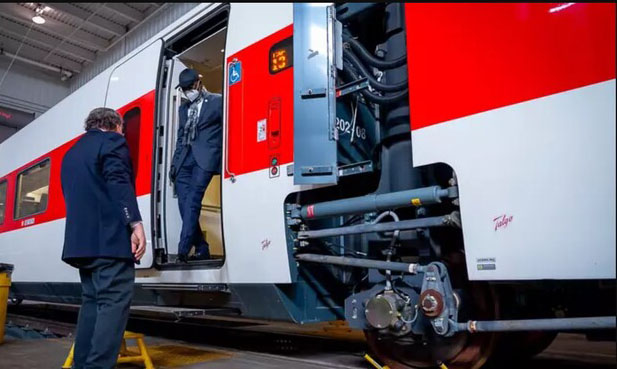President Muhammadu Buhari has called for more global support for the development of the Niger Basin area and its resources.
President Buhari made the call on Thursday while declaring the 12th virtual Summit of Heads of State and Government of the Niger Basin Authority (NBA) open in Abuja.
According to a statement issued by his Special Adviser on Media and Publicity, Mr. Femi Adesina, the President observed that River Niger, commonly called Djoliba in Guinea and Mali, offers enormous development opportunities in the fields of agriculture, animal husbandry, fishing, fish farming, hydro-power, hydraulics and navigation.
According to him, the river, which provides a source of sustenance to more than 160 million Africans, deserves to continually be showcased to the world so that it could attract the sort of attention and resources, which would, in turn, improve the lives and livelihood of the people who depend on it.
“It is, therefore, necessary to continue to promote its enormous potential for the benefit of our people and to improve the socio-economic development of the region,” he said.
The Nigerian leader expressed appreciation to technical and financial partners, including the African Development Bank (AfDB), the Global Environment Fund (GEF), the German Financial Cooperation (KFW), for identifying with the vision and projects of the authority.
He urged them to continue to support efforts at developing the Niger Basin in the fight against pollution and the degradation of ecosystems, in order to manage its resources in a sustainable and equitable manner.
Buhari, who is the outgoing Chairman of the NBA Leaders’ Summit, also used the occasion to give an account of his five-year stewardship, piloting the affairs of the institution.
“Excellencies, it has been a privilege to lead this Summit of Heads of State and Government for the past five years, since you all unanimously endorsed me as the Chairman at the 11th Summit held in Cotonou, Benin Republic on 8th January 2016 to lead our common Institution.
“Of the several decisions taken at the Summit, only the decision on funding of the NBA 2016-2024 Operational Plan is yet to be fully implemented.
“It is pertinent to note that there are some ongoing programmes like support to Ground Water Management in Niger Basin (AGES), project II to strengthen NBA and its Member Countries’ technical capacity and human resources for improving transboundary groundwater resource management in the Niger Basin,” he said.
The President also listed other ongoing programmes to include the Integrated Development and Adaptation to Climate Change in Niger Basin financed by the AfDB, GEF, KFW and NBA member countries to improve the resilience of the Niger River ecosystems and populations through sustainable management of natural resources.
The Nigerian leader explained that the climate change programme will cover the nine NBA members-countries- Benin, Burkina Faso, Cameroon, Côte d’Ivoire, Guinea, Mali, Niger, Nigeria and Chad.
“Distinguished delegates, it should be noted, to our collective delight that these achievements were only possible with your active support.
“It is also my pleasure to tell this meeting that there is an improvement in our organization’s financial status as member countries are striving hard to pay their annual contributions in a timely manner,” he said.
The President also commended all member countries for their unflinching efforts towards contributing to the construction of a befitting Headquarters for the NBA, noting with appreciation the commitments made so far.
On behalf of member countries, President Buhari while thanking the outgoing Executive Secretary, Mr. Abderahim Bireme Hamid, for serving the Authority, noted that the 12th Summit is expected to appoint a new Executive Secretary and a Chairman.
“At this Summit, my tenure as the Chairman Summit of Heads of State and Government of our common institution comes to an end as I will hand over to a new Chairman.
“I urge you to extend maximum cooperation to the new Chairman for the continued smooth running of our Institution”, he said.
Meanwhile, Buhari has congratulated President Roch Kaboré of Burkina Faso on his appointment as the new Chairman of the Summit of Heads of State and Government of the Niger Basin Authority (NBA).
In his closing address at the virtual 12th summit of the Heads of State and Government of NBA, President Buhari, who is the outgoing Chair, said the Institution had ‘‘the utmost confidence’’ in President Kabore’s ability to steer the affairs of the Niger Basin Authority for the next two years.
‘‘Let me, on behalf of all Heads of State and Government of NBA, wish His Excellency President of the Republic of Burkina Faso, a very successful tenure,” the President said.
The Nigerian leader also congratulated member states of the NBA for a job well done, calling on them to continue to muster the needed political will and courage to implement the far-reaching decisions agreed at the Summit.
The President also expressed deep appreciation and gratitude to leaders and member-countries who attended the Summit as well as their ‘‘unwavering support and cooperation during my five-year tenure as Chairman of Summit of Heads of State and Government of the Authority.”

 Naira4 weeks ago
Naira4 weeks ago
 News3 weeks ago
News3 weeks ago
 Education4 weeks ago
Education4 weeks ago
 Social Media4 weeks ago
Social Media4 weeks ago
 Technology4 weeks ago
Technology4 weeks ago
 Investment4 weeks ago
Investment4 weeks ago
 Dividends4 weeks ago
Dividends4 weeks ago
 Economy4 weeks ago
Economy4 weeks ago















